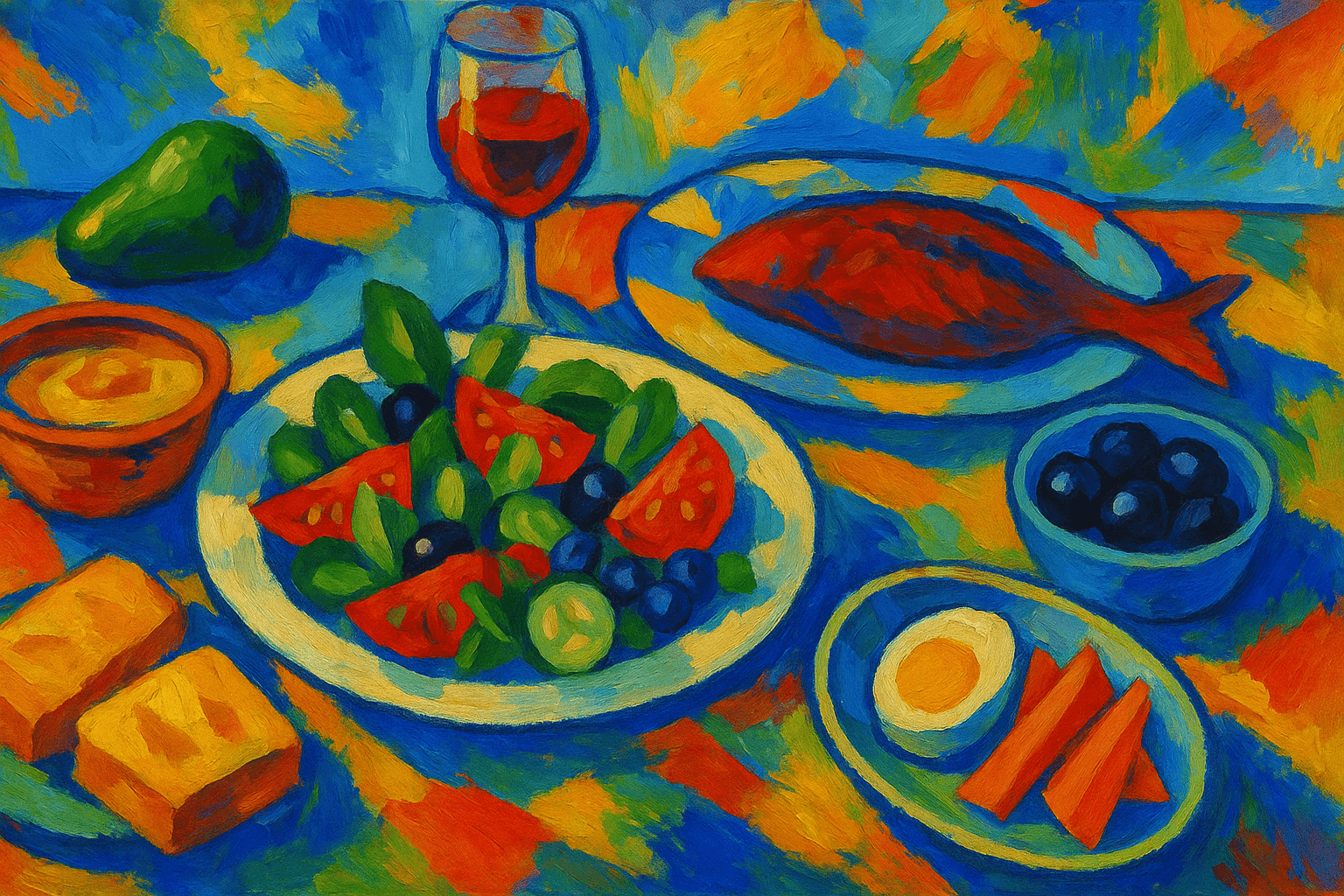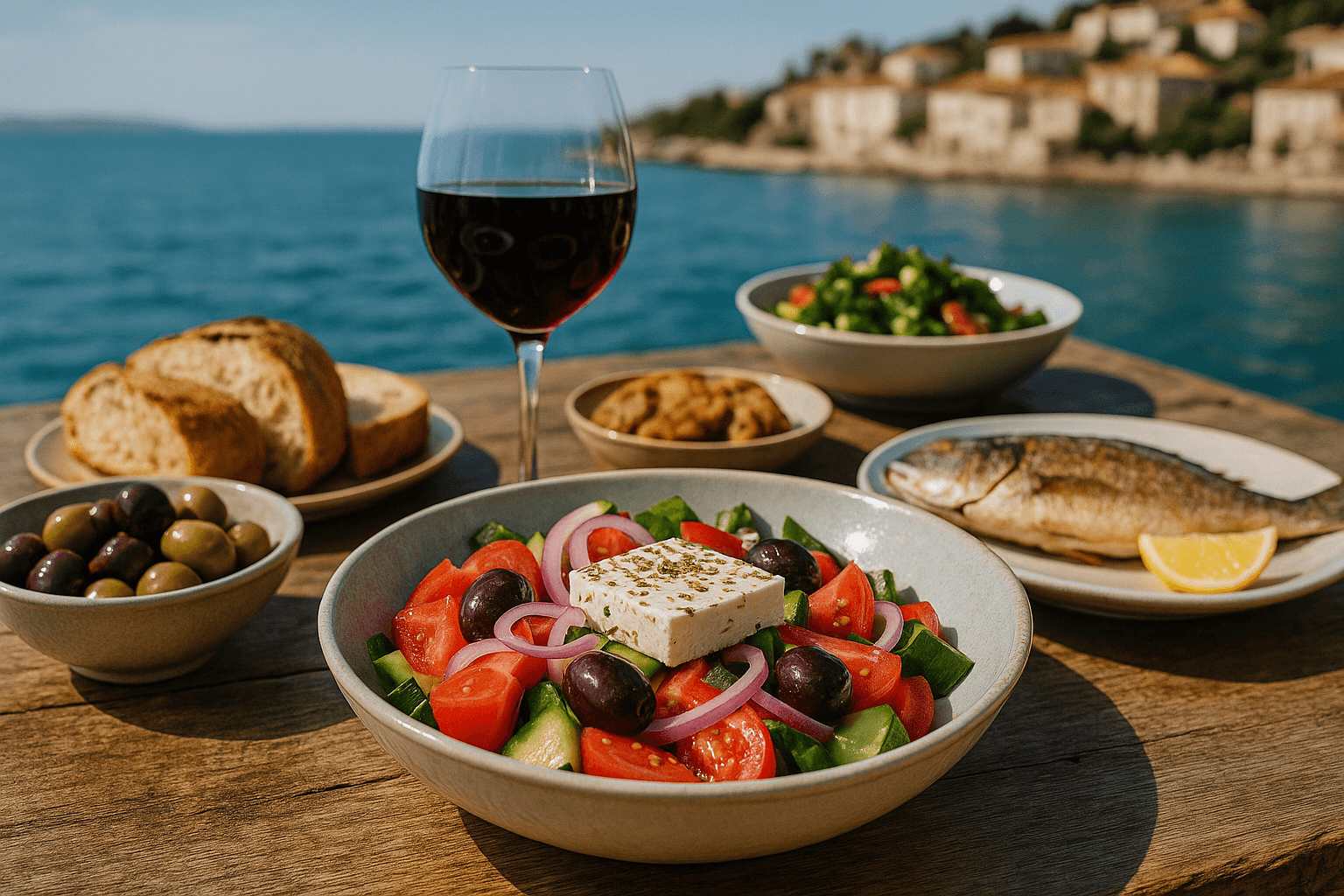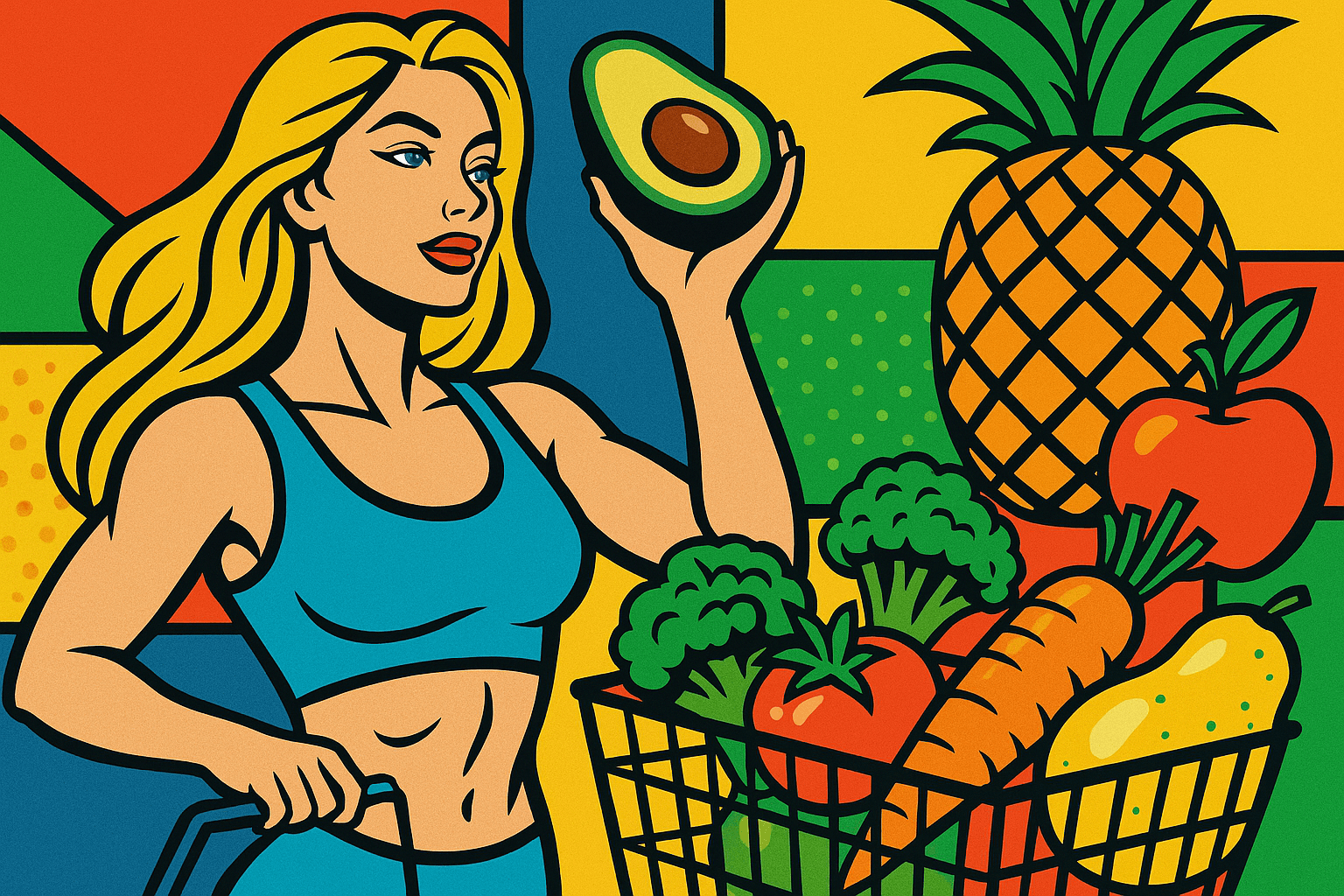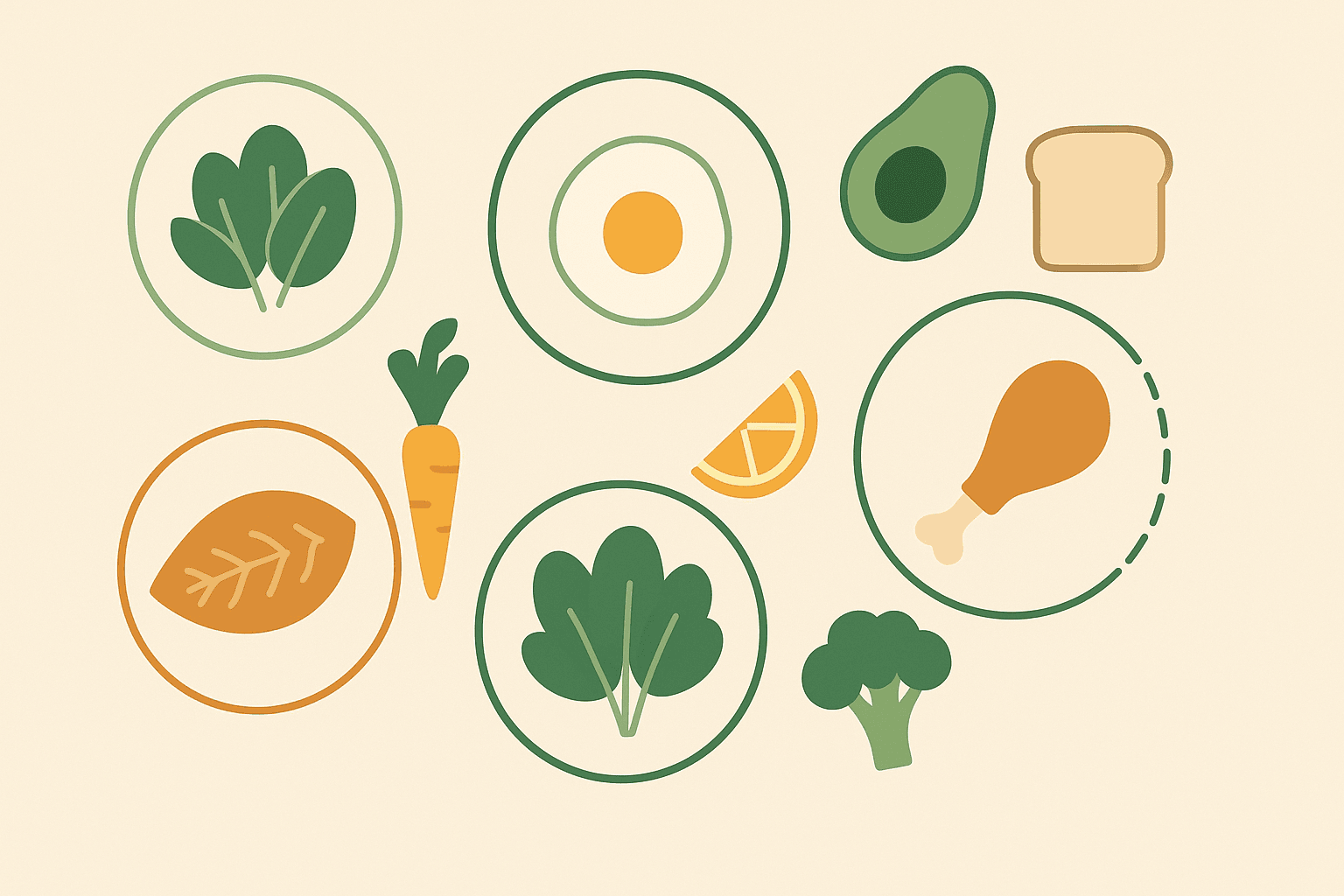The Mediterranean Diet Reimagined: Longevity, Flavor, and Everyday Simplicity
Published on June 17, 2025

A Lifestyle, Not a Trend
Celebrated by experts and science alike, the Mediterranean Diet isn’t a strict plan — it’s a joyful, balanced, and delicious way of living rooted in simplicity, variety, and connection.
What Is the Mediterranean Diet?
A flexible pattern inspired by the traditional eating habits of countries bordering the Mediterranean Sea.
Plenty of colorful fruits and vegetables
Whole grains like farro, barley, oats
Healthy fats, especially extra-virgin olive oil
Legumes — chickpeas, lentils, beans
Nuts and seeds
Seafood 2–3 times per week
Fermented dairy like yogurt or cheese in moderation
Herbs and spices in place of salt
Minimal red meat and sugar
Optional red wine, enjoyed socially
Meals are savored slowly, often shared, and guided by the seasons. Bread is welcome — especially whole grain or sourdough — and cooking at home is embraced using simple methods like roasting and grilling.
The Science of Longevity
Proven health benefits backed by research:
Improves heart health and reduces inflammation
Supports healthy weight and stable blood sugar
Boosts brain function and reduces Alzheimer’s risk
Linked to longer lifespan and improved gut health
Environmentally friendly due to less red meat
Supports emotional well-being and social connection
Emerging research also ties it to hormone balance, fertility, and lower autoimmunity.
Why It Works (and Why It Lasts)
It’s not a restrictive diet, but a generous, flexible lifestyle:
Real food, full flavor
Satisfying macronutrient balance
No food group exclusions
Promotes connection and pleasure in eating
Adapts to your culture and taste
Encourages slower meals and mindful eating
Aligns well with circadian rhythms — more during daylight, less at night
How to Bring It Into Your Life
Start with small, sustainable shifts:
Use olive oil instead of butter
Season with herbs and lemon, not just salt
Swap white grains for whole grains
Add beans to soups and bowls
Choose seafood over red meat twice a week
Snack on fruit, olives, or nuts
Hydrate with water, tea, or modest wine
Make meals special — slow down and share
Tips for Success
Batch cook grains, beans, and veggies on weekends
Shop the perimeter of the grocery store
Eat screen-free, outdoors, or with calming music
Progress over perfection — find a joyful rhythm
10 Mediterranean Diet Myths, Busted
Myth 1: It’s all Italian.
No — it spans Morocco, Lebanon, France, and more.
Myth 2: It’s expensive.
Core ingredients like beans, grains, and frozen veggies are budget-friendly.
Myth 3: Wine is required.
Nope — wine is optional.
Myth 4: It’s low-fat.
False — healthy fats are essential.
Myth 5: It’s not good for weight loss.
Wrong — it’s satisfying and helps regulate hunger.
Myth 6: Everything must be homemade.
Not necessarily — prepping staples in bulk is key.
Myth 7: You must love to cook.
Fast, delicious Mediterranean-style meals are doable in 10 minutes.
Sample Mediterranean Day on Your Plate
Breakfast
Greek yogurt + berries + walnuts + drizzle of honey + chia seeds
Lunch
Lentil soup + whole grain bread + cucumber/tomato salad with lemon and olive oil
Snack
Almonds + tangerine
Dinner
Grilled salmon + sautéed greens + herbed farro + optional glass of red wine
Dessert
Fresh figs or dark chocolate
Hydration: Aim for 6–8 glasses of water; herbal teas fit beautifully.
Meal timing: Try making lunch your biggest meal of the day.
Prep tip: Double dinner and pack leftovers for lunch.
Final Thoughts
This isn’t deprivation — it’s celebration. The Mediterranean Diet nourishes body and soul through pleasure, connection, and joy.
Start with one Mediterranean-style meal this week. Then another. Build from there.
Let health follow flavor. Let meals be rituals. Let food be your everyday joy.
Because the best diet? One you don’t even notice.
And the best lifestyle? One you truly savor.








